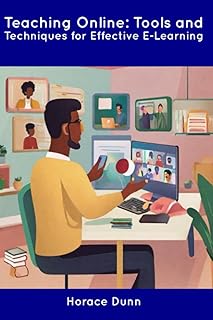Studying online has evolved beyond being a solution for remote students to a mainstream educational choice. The number of students opting for online education in Australian universities has steadily risen over the years. Some universities now have more online students than on-campus ones, with concerns about isolation and lack of interaction persisting among prospective online learners.
Dr. Ben Kehrwald, a developer of online courses at UniSA, debunks the myth that online learning is isolating, emphasizing the interactive nature of modern online education. UniSA, a pioneer in distance education, has adapted to provide high-quality online courses with ample student-teacher and peer interactions.
Dr. Negin Mirriahi highlights the shift from traditional distance education to contemporary online learning, emphasizing the importance of fostering a sense of community and facilitating engaging discussions through various online platforms. The key lies in designing courses that promote interaction and collaboration among students.
Online learning offers flexibility in terms of time, pace, and accessibility to course materials. Dr. Kehrwald underscores the benefits of engaging with content at one’s own pace and the use of technology to enhance the learning experience. The integration of new technologies at the program level is crucial for motivating students to adopt and utilize these tools effectively.
Professor Shane Dawson discusses the development of OnTask, a tool aimed at providing personalized feedback to students based on their engagement with course materials. This automated feedback system is designed to enhance student learning outcomes and retention rates in large online classes.
For individuals like Jacquie Lavis, an online degree provided the validation needed to advance in her career. Juggling work and family responsibilities, online education offered the flexibility and convenience required to pursue academic qualifications while balancing other commitments.
Online education also holds promise for refugees and marginalized communities seeking to improve their circumstances through learning. Mariam Aman Shah’s research on Massive Open Online Courses (MOOCs) highlights the potential of online education to bridge educational gaps and empower disadvantaged populations.
Contextualizing online education to suit the needs and cultural backgrounds of learners is essential for its success. Shah emphasizes the importance of designing courses that cater to diverse learners, including refugees in different regions, by considering their unique contexts and challenges.
While MOOCs offer flexibility and accessibility, ensuring engagement and relevance is crucial to retaining student interest. Shah points out the need for structured support and engagement strategies to motivate online learners and reduce dropout rates.
Online learning continues to reshape the landscape of education, offering diverse opportunities for personal and professional growth. As technology advances and educational models evolve, the power of online learning to democratize access to knowledge remains a transformative force in the modern education sector.
📰 Related Articles
- Online Learning Platforms Enhance Medical Education: Study Insights
- AI Transforms Education for Hong Kong Families, Tailoring Learning Experiences
- Victorian Department of Education Enhances Professional Learning Programs
- University of Nevada Students Explore South Korea’s Education System
- University of Miami Students Excel in Diverse Research Projects






